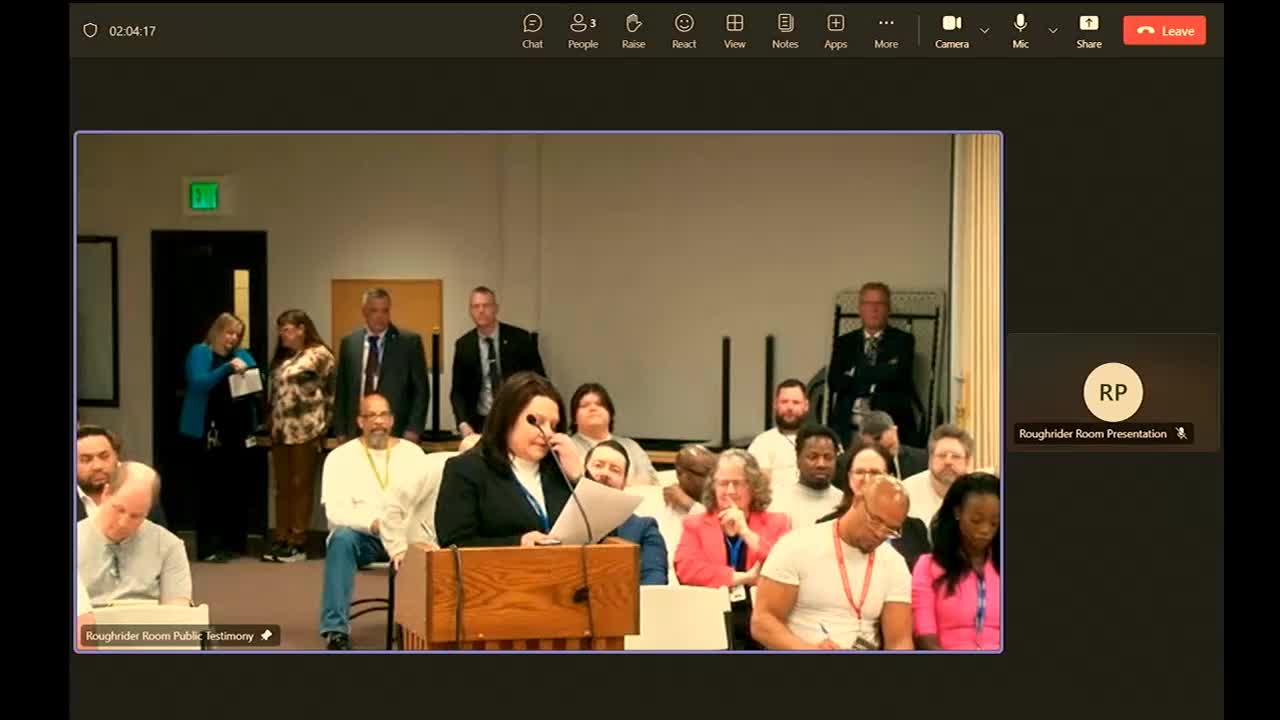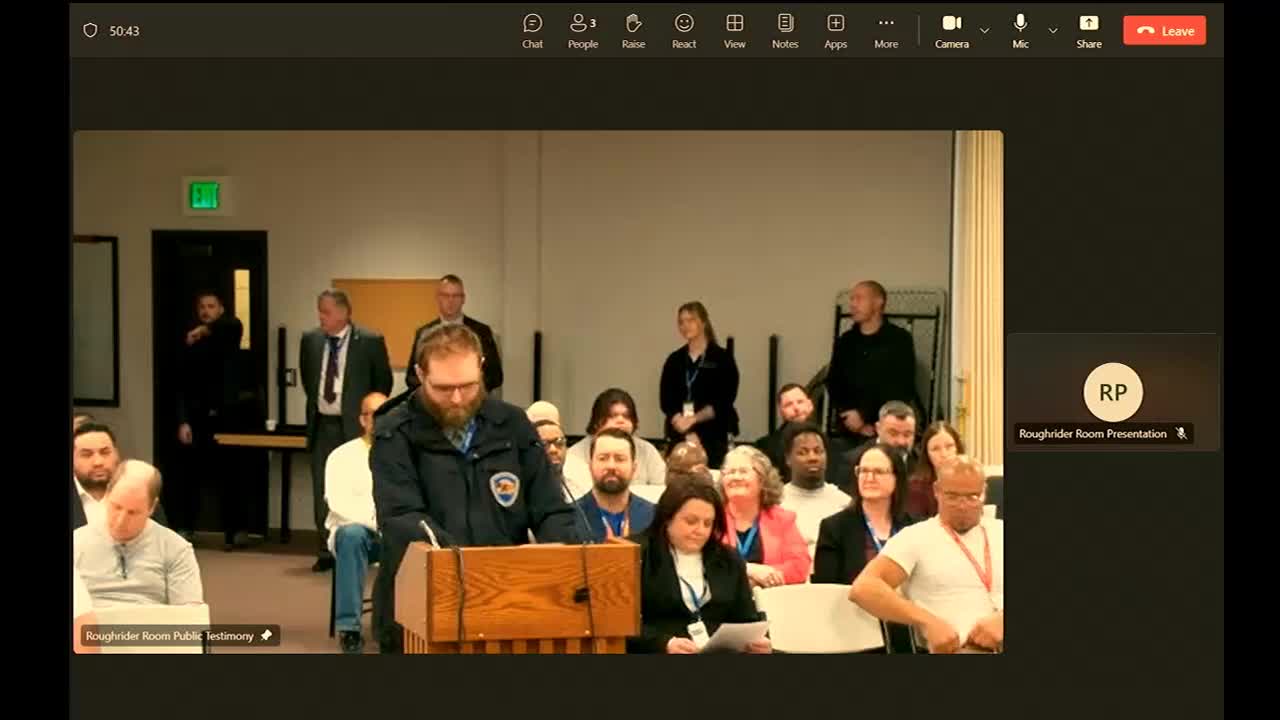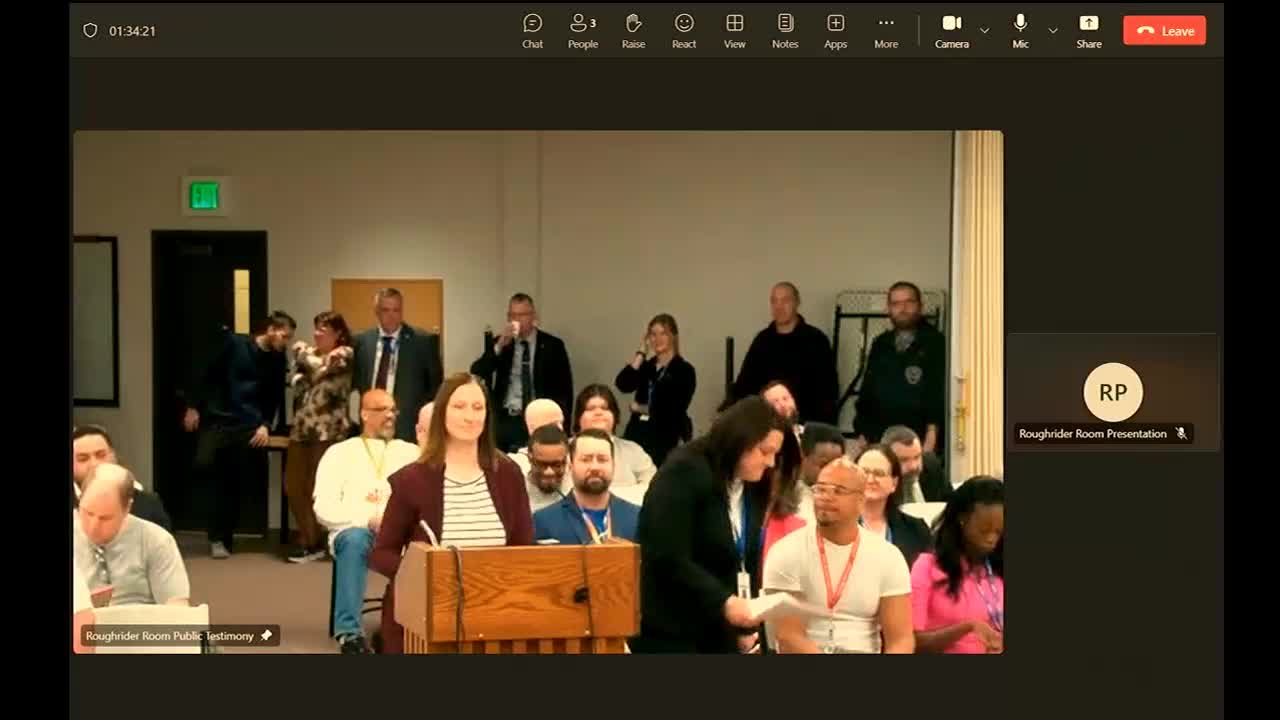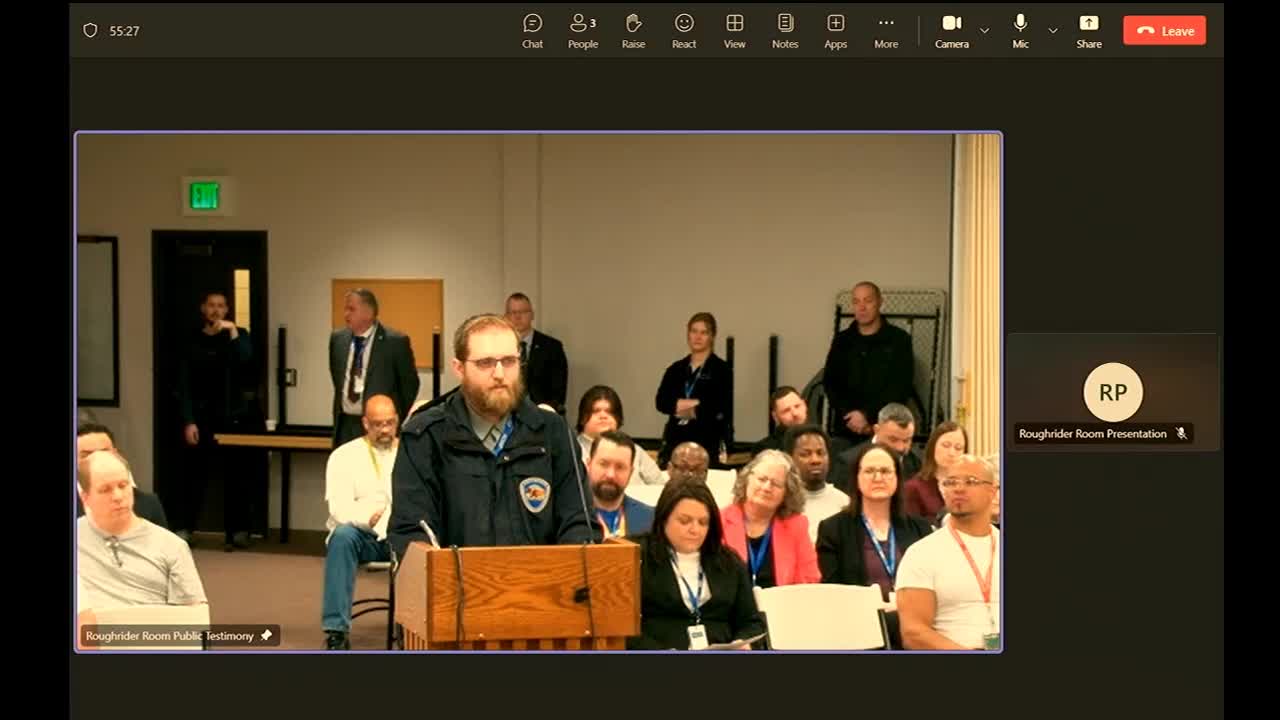Article not found
This article is no longer available. But don't worry—we've gathered other articles that discuss the same topic.

Residents and partners tell appropriators mandatory minimums would remove incentives, harm reentry

Correctional officers and residents describe trauma response, peer support and resident crisis teams

NDSP education and workforce programs spotlighted — college classes, Last Mile coding and CDL training

